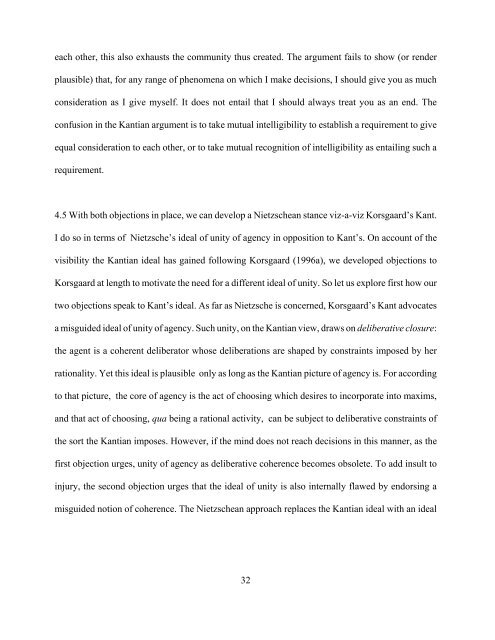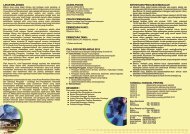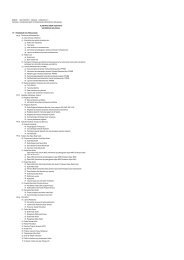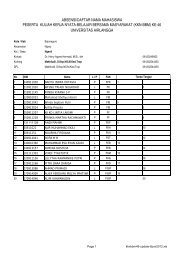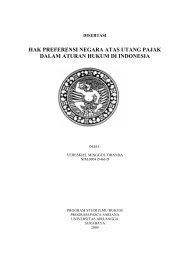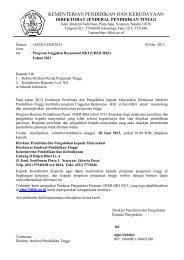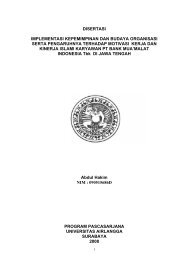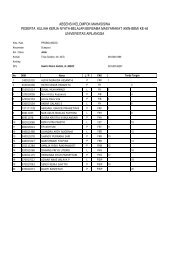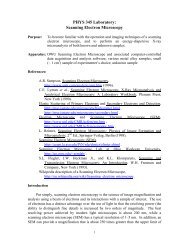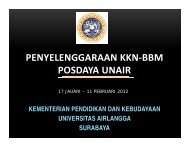Nietzsche's Naturalistic Ethics - UNAIR | E-Book Collection
Nietzsche's Naturalistic Ethics - UNAIR | E-Book Collection
Nietzsche's Naturalistic Ethics - UNAIR | E-Book Collection
Create successful ePaper yourself
Turn your PDF publications into a flip-book with our unique Google optimized e-Paper software.
each other, this also exhausts the community thus created. The argument fails to show (or renderplausible) that, for any range of phenomena on which I make decisions, I should give you as muchconsideration as I give myself. It does not entail that I should always treat you as an end. Theconfusion in the Kantian argument is to take mutual intelligibility to establish a requirement to giveequal consideration to each other, or to take mutual recognition of intelligibility as entailing such arequirement.4.5 With both objections in place, we can develop a Nietzschean stance viz-a-viz Korsgaard’s Kant.I do so in terms of Nietzsche’s ideal of unity of agency in opposition to Kant’s. On account of thevisibility the Kantian ideal has gained following Korsgaard (1996a), we developed objections toKorsgaard at length to motivate the need for a different ideal of unity. So let us explore first how ourtwo objections speak to Kant’s ideal. As far as Nietzsche is concerned, Korsgaard’s Kant advocatesa misguided ideal of unity of agency. Such unity, on the Kantian view, draws on deliberative closure:the agent is a coherent deliberator whose deliberations are shaped by constraints imposed by herrationality. Yet this ideal is plausible only as long as the Kantian picture of agency is. For accordingto that picture, the core of agency is the act of choosing which desires to incorporate into maxims,and that act of choosing, qua being a rational activity, can be subject to deliberative constraints ofthe sort the Kantian imposes. However, if the mind does not reach decisions in this manner, as thefirst objection urges, unity of agency as deliberative coherence becomes obsolete. To add insult toinjury, the second objection urges that the ideal of unity is also internally flawed by endorsing amisguided notion of coherence. The Nietzschean approach replaces the Kantian ideal with an ideal32


